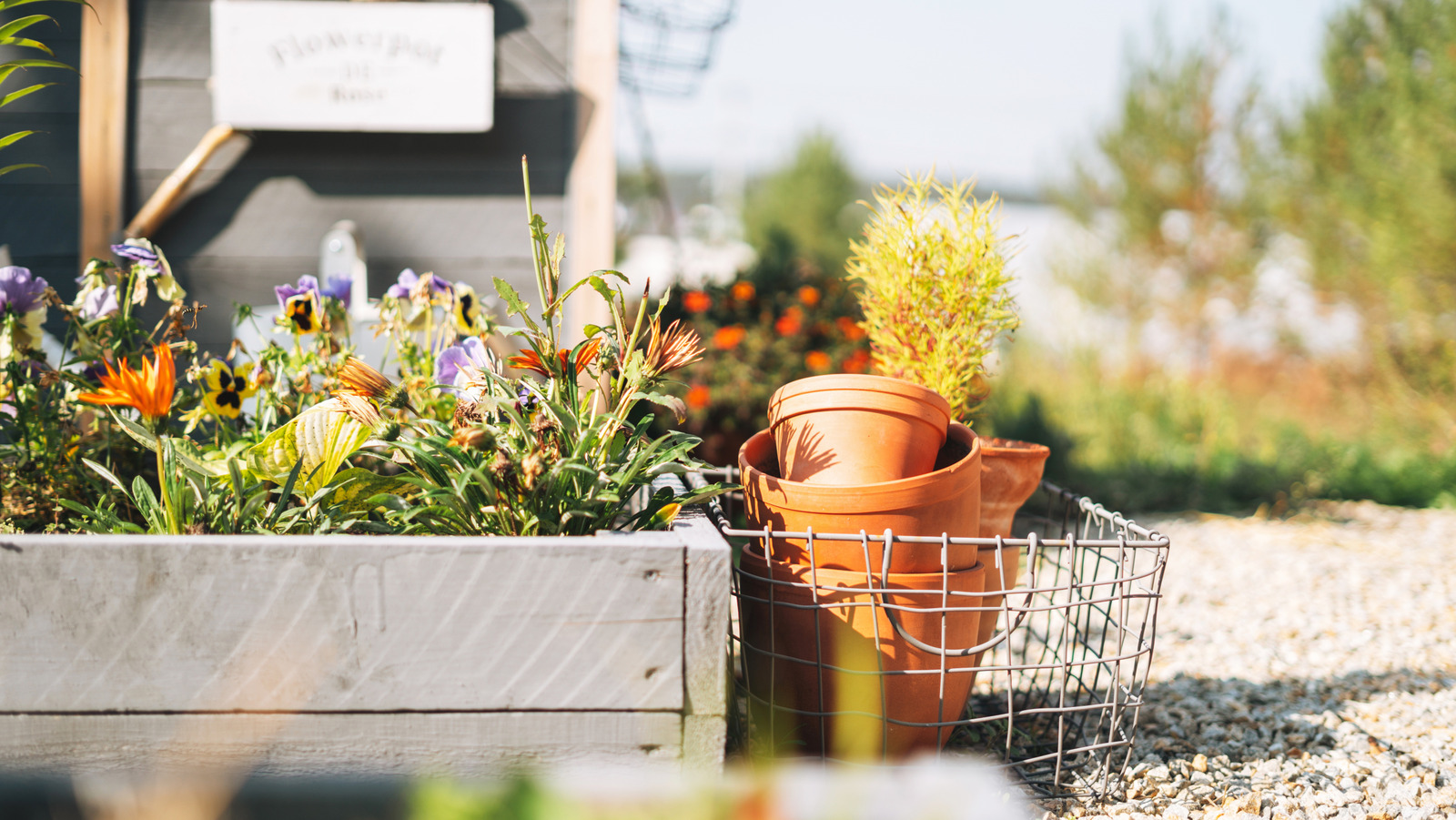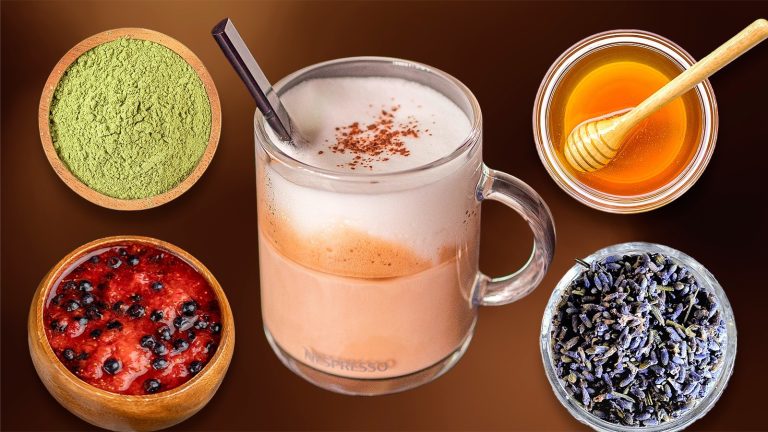A well-stocked kitchen is the perfect setting for cooking regular meals, experimenting with new cuisines, and gathering with family and friends to share in the experience of great food. With grocery prices continuing to climb and environmental concerns ever-present, finding new ways to repurpose kitchen scraps and reduce food waste is just a good idea. For those wanting to test out your green thumb, reusing old kitchen items can be a great help to your garden too. Egg cartons, cooking water, cookie sheets, coffee grounds, and old dishware can all have a new life as garden ornaments and decorations.
Reusing your kitchen staples as garden tools or boosters is an excellent way to prevent excess kitchen trash and keep costs low. Rather than purchase pots for your seedlings, egg cartons are compostable and provide ideal housing for seed starters. If you have unsalted water leftover from cooking rice or rinsing produce, use it to water your plants rather than simply dumping it down the drain. If your cookie sheets are too warped for even heating in the oven, they will still provide the perfect surface on which to spread out and dry herbs. Coffee grounds provide essential nutrients and promote drainage for your potting soil. Finally, if you haven’t the heart to toss out a cracked, old, or mismatched dish or mug, transform it into a beautiful decoration for your garden.
Eggs and egg cartons
Since egg price decreases haven’t hit grocery stores yet (and aren’t likely to anytime soon), these hot commodities are even more vital than ever. That goes for both the eggs and their cartons. Make the most of these pricey purchases by getting use out of your eggs for cooking and the shells and cartons for gardening. Eggs are, of course, a versatile source of wholesome nutrients, while the shells and cartons can both be used for planting purposes.
Once properly drained and thoroughly rinsed, a cracked-in-half egg can actually be used as a seed starter. Carefully poke a small drainage hole in the bottom, and then mix soil and your seedlings into the eggshell to let the seeds begin to germinate. You can also grind up leftover eggshells and put them in your soil to provide added nutrients and even act as a pest deterrent. Egg cartons can also be reused as seed starters because they are compostable and separated into individual sections, allowing you to easily keep your plants properly distanced from one another.
Cooking water
Reduce waste in your kitchen by repurposing it in the garden — that includes your cooking water too. As an important note, not all cooking water is safe for plants, so you should definitely take precautions with this tip to ensure your efforts aren’t counterproductive. For example, be sure to let your water cool first before garden use, and don’t use water that has been salted or seasoned. If you do intend to use still-boiling water, only pour it over areas with weeds to act as a weed killer. With that said, there are still plenty of options for cooking water that is safe to utilize in your garden.
Just like repurposing eggshells for their micronutrients, so too can you repurpose the water in which you’ve boiled eggs, provided you haven’t added any additional seasonings or ingredients and you’ve allowed the water to cool completely. Cooking water used for natural vegetables, including potatoes, turnips, zucchini, onions, and peppers, is also ideal as long as the water itself is free of additives and cooled. If you don’t add salt to your pasta water, it’s also viable for repurposing. When rinsing vegetables in the sink, catch the water in a bowl below and use that in your garden rather than letting it go down the drain. This also works with excess water from an electric kettle.
Cookie sheets
There are a variety of herbs you can grow for a cozy indoor tea garden, allowing you to flex your gardening skills both outdoors and in the kitchen. To make a full-bodied herbal tea, it’s typically advised to first dry your homegrown herbs to yield the most potent flavor. If you want to dry herbs for tea, you don’t actually need any special equipment to do so. All you need is time, patience, and heat. Forget the dehydrator or drying cabinet and reach for any old cookie tray or similar metal baking sheets. If your trays are warped or otherwise rendered non-viable for even baking or cooking, they will still work perfectly for drying herbs.
Though you may have planned to toss them out, these trays are a great, roomy surface on which to spread out your herbs. Take care to gently remove any dirt or debris from your herbs by either brushing them off by hand or rinsing them under water. Then, pat them dry with a towel or run them through a salad spinner to remove any moisture, which could promote mold growth. Place your herb-laden trays near a window with direct sunlight. In the right level of heat, it should take no more than a couple of days for your herbs to dry completely, making them ready for your next pot of tea.
Coffee grounds
If you’re a caffeine aficionado, chances are you’ve got a coffee pot, French press, or espresso maker adorning the countertop of your kitchen. For those wondering what to do with those old coffee grounds, they’re destined for a much more useful purpose than being disposed of. Because of their natural acidity, coffee grounds can upgrade your compost pile to start with. Once you add the composted materials to your garden’s soil for a nutrient-rich fertilizer, they provide extra nitrogen and promote soil drainage and fertility.
Since coffee grounds are considered a green compost material, you should aim for a 4:1 ratio of brown to green materials to achieve a healthy and balanced mixture. Combine a small amount of coffee grounds with lawn clippings, dead leaves, dry twigs, compostable paper (including coffee filters), and hay for a hearty addition to your garden. It’s much more ideal than putting them in the trash — or worse, down the drain. Help your garden grow healthily and happily with this natural boost.
Old dishware and drinkware
Though you may think of a broken dish as “junk,” it can absolutely be salvaged by moving it out of your kitchen and into the garden. Give new life to your broken or cracked dishware by turning it into crafts fitting for the outdoors. If you’ve got a mug with a broken handle, it can easily be repurposed into a feeder or birdbath. For those with a special talent for crafting, making a mosaic from broken dishes is a lovely way to breathe new life into your kitchen favorites by using them to decorate your garden.
If you’re a fan of “Alice in Wonderland,” consider theming an area of your garden around a “Mad Tea Party” by repurposing mismatched teacups, saucers, and more into a mini succulent garden. Mason jars are also ideal to use for sprouting roots. Even a set of upturned bowls can be set atop table legs to look like mushrooms for your garden gnomes, and a colander makes an exceptionally pretty suncatcher. There’s no limit to the ways you can reuse your kitchenware for breathtaking home and garden decor.





